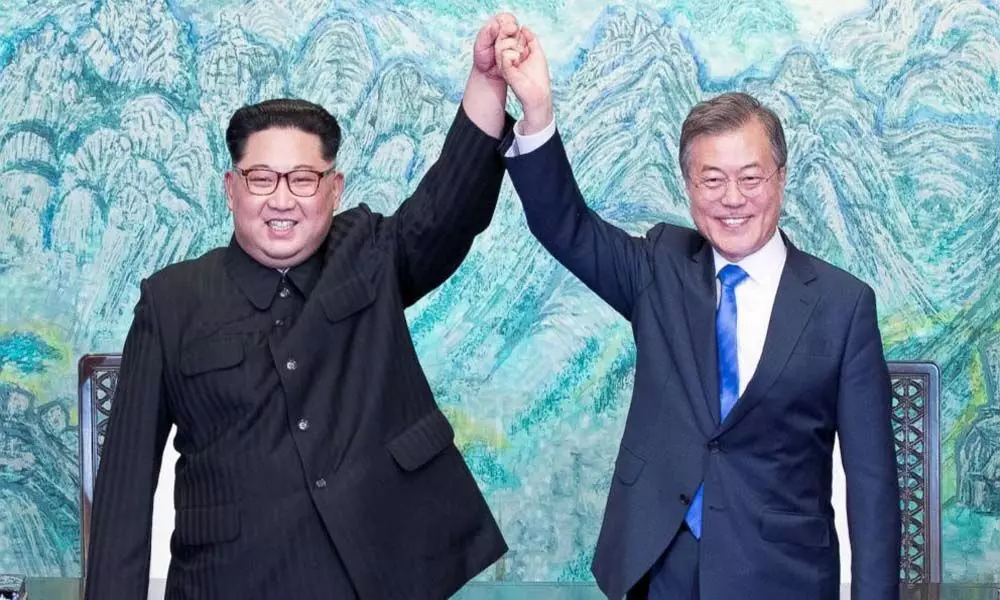N Korea uneasy over US-led exercises with S Korea
Moon's office last week denied reports the two sides were in talks to hold a possible summit and reopen the liaison office
image for illustrative purpose

KIM Jong Un's sister warned that upcoming US-South Korea military drills could jeopardize talks with Seoul, raising doubts about a diplomatic breakthrough less than a week after both sides announced a resumption of communications.
Kim Yo Jong has said the plan to hold annual allied exercises this month "seriously undermines" efforts to restore ties, according to the official Korean Central News Agency. The statement by Kim Jong Un's sister, one of the prominent faces of Pyongyang's pressure campaign against Seoul and Washington, reinforces worries North Korea would use South Korean President Moon Jae-in's desire for talks to try to force him to break with the US.
"Our government and army will closely follow whether the south Korean side stages hostile war exercises in August or makes other bold decision," said the younger Kim, who's a senior official with the ruling Workers' Party of Korea. "Hope or despair? Choice is not made by us."
The US and South Korea still planned to start the exercises on August 10, despite the warning, the DongA Ilbo newspaper reported on Monday. South Korea's defense ministry said last week the timing and scale of summertime military exercises had yet to be finalised.
Kim Jong Un and Moon agreed in letters to restore relations, improving the prospects for a breakthrough in an extended stalemate in nuclear talks. The two countries released what appeared to be coordinated statements last week calling for reconciliation on the peninsula, with state media in Pyongyang saying they agreed "to make a big stride in recovering the mutual trust."
North Korea has sought for decades to leverage the prospect of talks to scale back US-South Korean military drills, something which former President Donald Trump controversially agreed to during his summits with Kim Jong Un. Drills were canceled in the first half of 2020 because of the coronavirus pandemic and computer simulation exercises were carried out in August 2020 and March 2021, raising concerns about the alliance's readiness to respond in a crisis.
Moon, a long-time proponent of reconciliation who helped broker the first Trump-Kim summit in June 2018, leaves office in May and opinion polls suggest voters are open to replacing him with a conservative leader, who might take a more hawkish tone. While Kim's summits were in many ways unprecedented, they secured no tangible steps to wind down his nuclear arsenal and left US President Joe Biden with the same dilemma as his predecessors.
The two Koreas last week reopened hotlines that had been silent since a flare-up a year ago, when Kim's regime symbolically blew up a liaison office on its side of the border funded by Moon's government. The US has offered its support for the move by the two leaders to improve relations, saying it might help stalled nuclear talks.
Moon's office last week however denied reports that the two sides were in talks to hold a possible summit and reopen the liaison office.
Over the past several months, North Korea has published statements from Kim's sister to temper prospects of a breakthrough and to chastise South Korea for what Pyongyang sees as it spoiling relations on the peninsula.
"Those inside and outside south Korea are freely interpreting its meaning their own way and there is even a public opinion about the issue of the north-south summit," Kim Yo Jong said. "I think it is a premature hasty judgment. What I think is that the restoration of the communication liaison lines should not be taken as anything more than just the physical reconnection." (Bloomberg)

